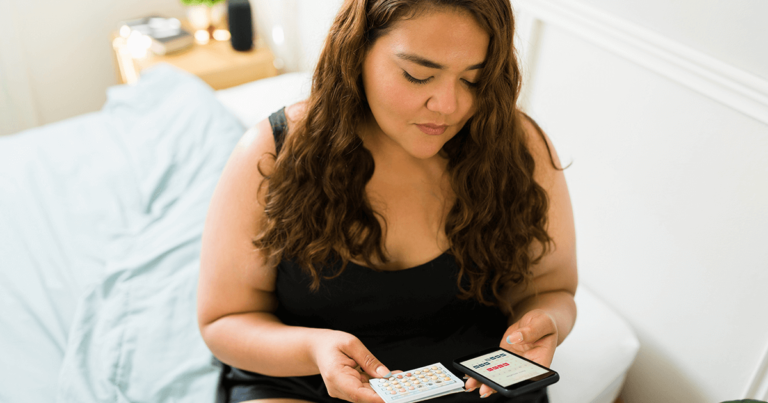Healthy Pregnancy Signs: How to Know Everything’s OK

As you go through your pregnancy, knowing the signs of a healthy pregnancy is key. You might feel different physically and emotionally. Learning about these symptoms helps you stay safe and get help when needed.
A healthy pregnancy shows signs like morning sickness, which can mean fewer birth defects. Also, more vaginal discharge, which is clear or white and odorless, keeps the cervix safe from infections. Knowing these signs helps you make better choices for your care.
But, some symptoms mean you need to see a doctor fast. About half of pregnancies with bleeding and pain in the first trimester might end in miscarriage. If you have severe stomach pain, heavy bleeding, or clear fluid leaking, get medical help right away.
Key Takeaways
- Recognizing signs of a healthy pregnancy is key for your and your baby’s health.
- Morning sickness can mean lower risks of birth defects.
- More vaginal discharge during pregnancy keeps the cervix safe from infections.
- About half of pregnancies with bleeding and pain in the first trimester might end in miscarriage.
- Severe abdominal pain, vaginal bleeding, and clear fluid leaking from the vagina need immediate medical attention.
- Understanding healthy pregnancy symptoms helps you stay safe and get help when needed.
Understanding the Signs of a Healthy Pregnancy
As you go through your pregnancy, it’s key to know the signs of a healthy pregnancy. These signs can be physical, like morning sickness and tiredness, or emotional, like mood swings. Knowing these signs helps you see if your pregnancy is going well.
There are physical and emotional signs of a healthy pregnancy. Morning sickness affects 70% to 80% of women, starting between 4 to 9 weeks. Fatigue hits nearly 90% of women in the first trimester. Mood swings, affecting up to 30% of women, are also common.
Physical Signs vs. Emotional Indicators
It’s important to know the difference between physical and emotional signs. Physical signs, like constipation and heartburn, come from hormonal changes. They can be managed with lifestyle changes. Emotional signs, like anxiety and depression, need a more careful approach and might need professional help.
When to Expect Different Signs
Signs of a good pregnancy change as the pregnancy advances. In the first trimester, you might feel sick in the morning, tired, and moody. Later, you might feel back pain and swelling. Regular prenatal visits help track these signs and ensure your pregnancy is healthy.
By understanding these signs and their causes, you can manage your pregnancy better. Remember, every woman’s experience is different. Always talk to your healthcare provider if you have any worries.
Early Pregnancy Wellness Indicators
As you start your pregnancy journey, it’s key to know the signs of a healthy pregnancy. Look out for physical and emotional changes. In the first trimester, you might feel sore breasts, more vaginal discharge, morning sickness, and tiredness.
These symptoms might be uncomfortable, but they show a healthy pregnancy. Morning sickness, for instance, affects 70-80% of pregnant people. Also, over 50% of pregnant women notice more vaginal discharge due to hormonal changes.
Other early signs of a healthy pregnancy include:
- Missed periods, though this can vary if your periods are irregular
- Breast changes, like tenderness and darker areola
- Frequent need to pee, because of more blood flow to the kidneys
- Mood swings and emotional changes, similar to premenstrual symptoms
Remember, every pregnancy is different. Not all women will feel the same symptoms. But knowing these signs helps you understand if your pregnancy is healthy and how to care for it.
By watching these early signs and talking with your healthcare provider, you can have a healthy pregnancy. A healthy pregnancy is just the start of an amazing journey. Being informed is the first step to a happy and healthy family.
Your Growing Belly: Normal Changes and Development
As you get further along in your pregnancy, you’ll see big changes in your belly. A growing belly is a sign of a healthy pregnancy. Around the 12th week, you might start to notice your belly getting bigger. Most women show their pregnancy belly by 16 to 20 weeks, if they wear tight clothes.
You might feel back pain, shortness of breath, and stretch marks. About 80% of pregnant people get a dark line down their belly, called the linea nigra. Back pain starts in the first trimester and gets worse by the second or third.
Expected Growth Patterns
The uterus is about the size of an orange before pregnancy. By the first trimester’s end, it’s like a grapefruit. By the second trimester’s end, it’s like a basketball. If you’ve been pregnant before, you might show sooner than first-time moms.
Understanding Fundal Height
The fundal height in centimeters matches the number of weeks you’re pregnant. This helps doctors check the baby’s growth and spot any problems. A normally growing fundal height means your pregnancy is likely healthy, giving you peace of mind.
Common Physical Changes
Many women get itchy bellies in the second trimester because of skin stretching. Diet changes can cause constipation and gas, making your belly look bigger in the first trimester. From weeks 28 to 40, weight gain slows down as you get closer to giving birth. Knowing these changes helps you understand if your pregnancy is healthy.
Monitoring Your Baby’s Movement Patterns
As your pregnancy advances, watching your baby’s movements is key. You might start feeling these kicks around 20 weeks. First-time moms might feel them a bit later. By the third trimester, you should know how your baby moves, showing Healthy pregnancy symptoms.
The American Congress of Obstetricians and Gynecologists (ACOG) says to feel 10 movements in two hours. If you don’t, try again or do something to get your baby moving. Babies often move more after eating and at night when you’re relaxed.
Here are some important things to remember about watching your baby’s movements:
- Babies sleep in 20-40 minute cycles in the womb, sometimes up to 90 minutes, without moving.
- It’s important to keep an eye on your baby’s movements. If you notice a drop, see a doctor right away.
- Less movement can be a sign of trouble, though it’s rare.
Healthy babies move every day until they’re born, even during labor. Knowing your baby’s movement patterns helps keep your pregnancy healthy. It also helps spot any problems early.
Vital Signs That Show Your Pregnancy Is Progressing Well
As you move through your pregnancy, watching certain vital signs is key. These pregnancy wellness signs help you and your doctor understand your health and your baby’s. Look for a steady heart rate, good blood pressure, and the right amount of weight gain.
Important signs to keep an eye on include:
- Heart rate patterns: A normal heart rate means a healthy pregnancy.
- Blood pressure readings: Blood pressure might drop during pregnancy, causing dizziness.
- Weight gain guidelines: You should gain 1 to 4 pounds in the first trimester.
By tracking these signs and living a healthy lifestyle, you can have a smooth pregnancy. Stay up-to-date on normal pregnancy indicators and pregnancy wellness signs to enjoy this special time.
The Role of Prenatal Testing in Confirming Health
As you move through your pregnancy, understanding prenatal testing is key. Prenatal testing helps spot issues early, so you can act fast. About 80% of pregnancies get tested, showing how common and vital these tests are.
Some important prenatal tests include:
- Noninvasive prenatal testing (NIPT) for genetic conditions like Down syndrome
- Maternal blood screening (quad screen) test for Down syndrome and trisomy 18
- Ultrasounds to check on fetal growth and find possible problems
- Glucose screenings for gestational diabetes
- Group B strep screening to prevent transmission during delivery
These tests can show signs of a good pregnancy and spot issues like preeclampsia, found in 5-8% of pregnancies. By watching your baby’s movements and getting regular tests, you can feel confident about your pregnancy. Signs everything is okay during pregnancy give you peace of mind, thanks to prenatal testing.

Talking to your healthcare provider about the risks and benefits of each test is important. This way, you can have a healthy and joyful pregnancy. Signs of a good pregnancy will be clear as you go along.
Emotional Well-being During Pregnancy
As you go through pregnancy, taking care of your emotional health is key. You might feel many emotions, like happiness and worry. Knowing positive pregnancy signs and how to know if pregnancy is healthy helps a lot.
Studies show that up to 1 in 5 women face mental health issues during pregnancy and after. It’s important to know the signs of emotional health and take steps to stay well. This includes having a support system, taking care of yourself, and talking to your healthcare provider about your feelings.
- Ability to manage stress and anxiety
- Maintaining a healthy sleep routine
- Engaging in activities that bring joy and relaxation
- Having a strong support system
By focusing on your emotional well-being, you can handle pregnancy’s challenges better. It’s vital to stay informed about positive pregnancy signs and how to know if pregnancy is healthy. This way, you can have a positive and healthy experience.
Nutrition and Exercise as Health Indicators
Nutrition and exercise are key to a healthy pregnancy. Eating well and staying active help both mom and baby. A balanced diet gives the needed nutrients, while exercise lowers pregnancy risks.
Studies show that healthy eating can lead to fewer pregnancy problems. Comprehensive nutritional supplementation helps improve birth outcomes. Important nutrients include:
- Folic acid to prevent birth defects
- Iron to reduce the risk of anemia
- Calcium to support fetal bone development
- Protein to support fetal growth
Regular exercise is also vital. It helps prevent gestational diabetes and hypertension. The American College of Obstetricians and Gynecologists (ACOG) suggests 150 minutes of moderate exercise weekly. Good nutrition and exercise lower pregnancy risks and support a healthy pregnancy.
Women can control their health by choosing wisely in nutrition and exercise. This benefits both mom and baby, ensuring a healthy start. Remember, nutrition and exercise are key to a healthy pregnancy.
Modern Technology in Tracking Pregnancy Health
As you go through your pregnancy, it’s key to know about new ways to track health. Modern tech has changed how moms-to-be keep an eye on their health and their baby’s. Now, with digital health records, home devices, and apps, you can get lots of info easily.
About 70% of pregnant women are open to changing their habits based on phone tips. This shows how important tech is for a healthy pregnancy. Using these tools, you can keep a closer eye on your health and make better choices.
Modern tech offers many benefits for tracking pregnancy health, including:
- Easy access to health info and resources
- Better tracking of fetal heart rate and blood pressure
- Better talks with healthcare providers
- Personal tips for a healthy pregnancy
By using modern tech, you can understand your body and your baby’s growth better. This leads to a healthier and more empowered pregnancy. As you check out different tools and resources, always talk to your healthcare provider for the best care.
Common Misconceptions About Healthy Pregnancies
As you go through your pregnancy, it’s key to know what’s real and what’s not. Many think all pregnancies are the same, but they’re not. Each one is different, and normal pregnancy indicators can vary greatly. Knowing about pregnancy wellness signs helps you make smart choices for a healthy pregnancy.
Some myths about healthy pregnancies include thinking morning sickness is a must or that all women crave certain foods. But, these can differ a lot. Also, normal pregnancy indicators can change as your pregnancy goes on. Knowing these changes can help spot any problems early.
To understand what a healthy pregnancy is like, consider these points:
- Regular exercise, like 30 minutes of moderate activity, four to five times a week, is good for a healthy pregnancy.
- Eating a balanced diet full of important nutrients helps your baby grow and keeps you healthy.
- Drinking plenty of water and avoiding too much heat can prevent problems.
By knowing these pregnancy wellness signs and normal pregnancy indicators, you can take steps for a healthy pregnancy. Remember, every pregnancy is unique. It’s important to stay informed and talk to your healthcare provider if you have any worries.
When to Contact Your Healthcare Provider
As you go through your pregnancy, knowing when to call your healthcare provider is key. It’s important to recognize signs of a good pregnancy and signs everything is okay during pregnancy. This helps you take the right steps for a healthy pregnancy.
Keep an eye on your body for any changes or symptoms that might mean trouble. If you see severe vaginal bleeding, regular contractions, or sudden weight gain, call your healthcare provider right away. Symptoms like sudden swelling of the face, hands, or feet, and new vision problems, could mean preeclampsia and need quick medical help.
- Severe vaginal bleeding
- Regular contractions indicating labor
- Sudden weight gain
- Symptoms of preeclampsia, such as sudden swelling of the face, hands, or feet, and new vision problems
- Signs of deep vein thrombosis, such as pain in the calf or thigh, swelling in the leg or groin, and skin discoloration
Also, keep track of your medications and test results for better care. If you have any worries or questions, don’t hesitate to call your healthcare provider. Knowing signs everything is okay during pregnancy can lead to a healthy and successful pregnancy.
Conclusion: Embracing Your Healthy Pregnancy Journey
Starting your pregnancy journey is exciting. It’s key to focus on the positive signs and feel confident. Knowing the signs of a healthy pregnancy helps you enjoy this special time.
Going to your prenatal appointments is very important. It lowers the risk of problems for you and your baby. Eating right, staying active, and getting emotional support also help a lot.
Every pregnancy is different. It’s vital to talk to your healthcare provider about any worries or questions. By staying informed and involved in your care, you’ll have a happy and healthy pregnancy.






